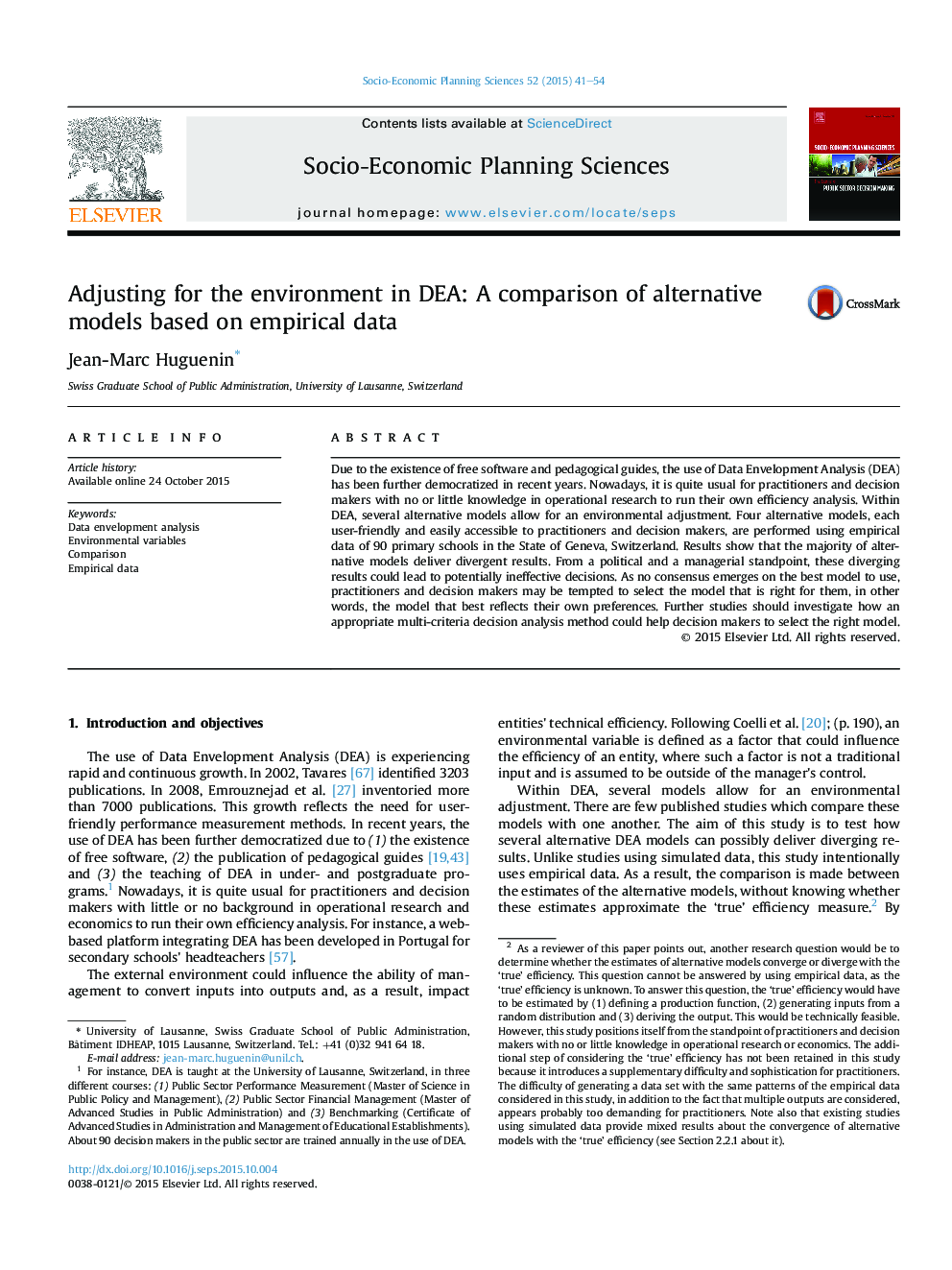| Article ID | Journal | Published Year | Pages | File Type |
|---|---|---|---|---|
| 987827 | Socio-Economic Planning Sciences | 2015 | 14 Pages |
•This study addresses the concrete and practical issues faced by practitioners who perform their own efficiency analysis.•Based on empirical data, the majority of the tested models provide divergent results, i.e. efficiency scores.•Performance data should therefore be used as intelligence rather than numbers to be strictly applied.•In this context, the principle of permanence of methods is recommended.
Due to the existence of free software and pedagogical guides, the use of Data Envelopment Analysis (DEA) has been further democratized in recent years. Nowadays, it is quite usual for practitioners and decision makers with no or little knowledge in operational research to run their own efficiency analysis. Within DEA, several alternative models allow for an environmental adjustment. Four alternative models, each user-friendly and easily accessible to practitioners and decision makers, are performed using empirical data of 90 primary schools in the State of Geneva, Switzerland. Results show that the majority of alternative models deliver divergent results. From a political and a managerial standpoint, these diverging results could lead to potentially ineffective decisions. As no consensus emerges on the best model to use, practitioners and decision makers may be tempted to select the model that is right for them, in other words, the model that best reflects their own preferences. Further studies should investigate how an appropriate multi-criteria decision analysis method could help decision makers to select the right model.
